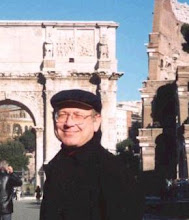Imagine two men going door-to-door through you neighborhood, one a capitalist, the other a public servant. The capitalist is selling a product. At each house, he promotes the product as much as possible but, in the end, he leaves the acceptance of the product to the potential customer. Each customer who accepts the product makes his decision voluntarily. Because of the voluntary nature of each customer’s acceptance, we can assume that the customer has individually determined that he can materially improve his life by making the purchase – the purchase is essentially making the customer wealthier.
The public servant is also going door-to-door demanding that each resident give him money regardless of whether he leaves any goods or not. The residents pay, not because the public servant enriches their life, but because he threatens them with violence if they do not pay. Failure to pay this man leads to the resident’s imprisonment, estrangement from his family, and perhaps the complete destruction of his career.
Each transaction that the capitalist enters into increases the wealth of the neighborhood. Because the transactions are voluntary, the capitalist is providing each customer with something that the customer needs and something that the customer would not be able to produce on his own as easily or as cheaply as he can obtain it from the capitalist (we can assume this from the voluntary nature of the transaction). Because each transaction is voluntary on both sides, it generates wealth for both the customer and the capitalist.
The public servant, on the other hand, does not enrich people through his taking transactions. His transactions, known as taxes, are taken with no promise that there will be anything given in return. Since the resident of your neighborhood does not act voluntarily in his relationship with the public servant, we cannot assume that he is enriched by the transaction. The resident is, in fact, acting involuntarily from coercion and force and not for his own advantage.
True, the capitalist is acting from his own self-interest, but this self-interest directs him to serve the self-interests of each and every consumer that he sells his product to. The capitalist’s self-interest is only served by serving other people. The customers of the capitalist are also acting out of their best interests (judged by its voluntary nature), but their self-interests serve the interests of the capitalist also, giving him an incentive to produce more of the product and thereby further increase the wealth of this neighborhood and others within the capitalist’s market.
However, where the capitalist is served only by those he has served, there is no similar reciprocal relationship with the public servant. The public servant is served by all those from which he has extracted taxes, but since those taxes were extracted by coercion and force, the public servant must, in turn, serve those who provide him with the power to use coercion and force. In a dictatorship, the public servant must use his tax revenue to serve a single tyrant. In an oligarchy, he owes his gains to a small number of powerful people. Even in the case of a democracy, the public servant must serve a bare majority of the people that are necessary to keep him in power, the remaining minority receiving little or nothing for the taxes they paid.
While the capitalist succeeds by enriching those who voluntarily serve him, the public servant succeeds by enriching those who provide him with the power and weaponry to force and coerce those that involuntarily serve him.
..it [socialism] cannot be considered as a system of society’s economic organization. It is a means to disintegrate social cooperation and to bring about poverty and chaos.
Ludwig von Mises, The Anti-Capitalistic Mentality




